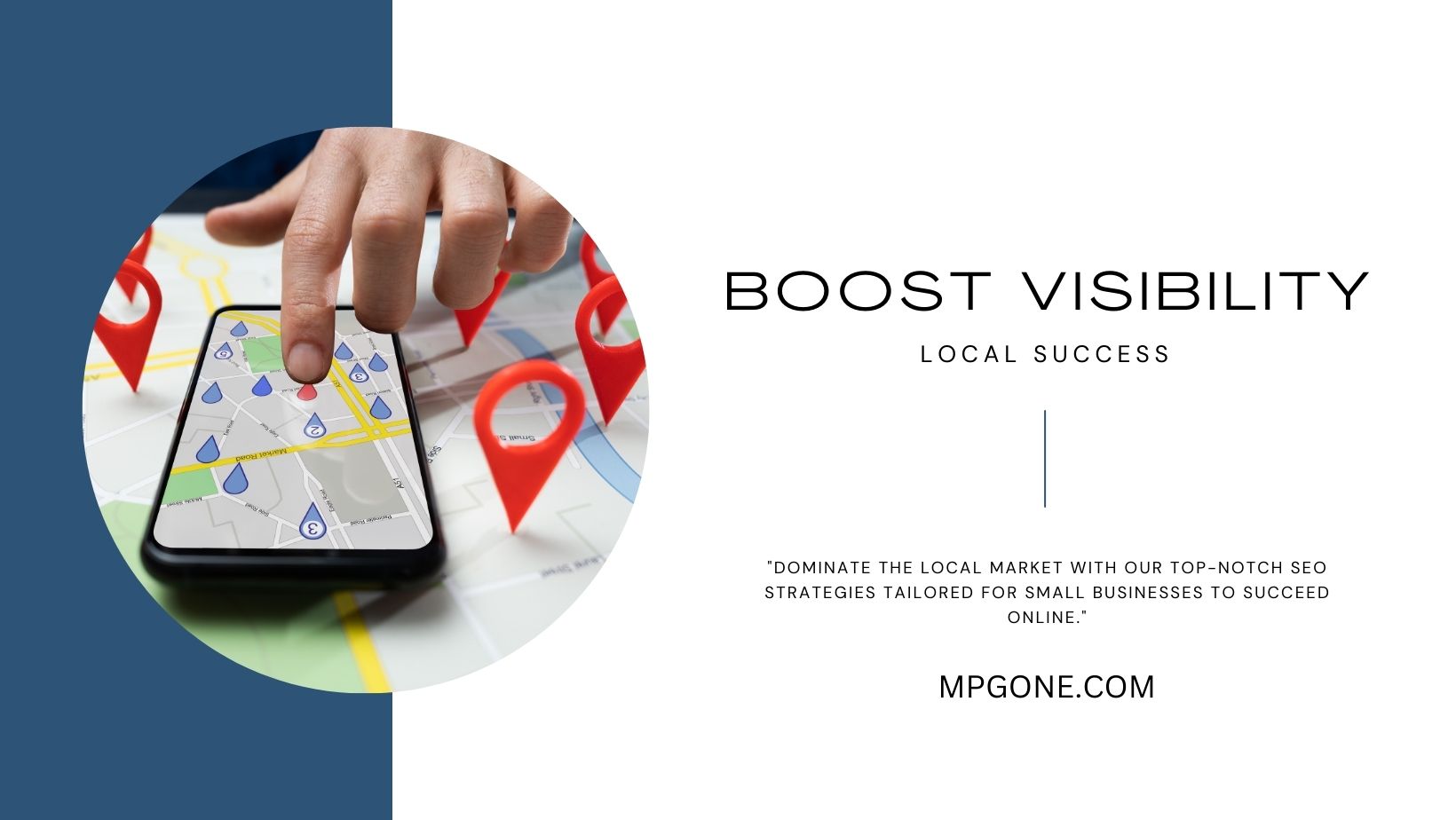The Ultimate Guide to Local SEO for Small Businesses in 2024
hello everyone i’m back again, As a small business owner, attracting local customers is crucial for your success and growth. In today’s digital landscape, local search engine optimization (SEO) has become an essential strategy to increase your online visibility, drive more qualified traffic to your website, and ultimately boost your revenue. This comprehensive guide will walk you through the key aspects of local SEO and provide actionable strategies to help your small business thrive in your local market.
Understanding Local SEO
Local SEO is a search engine optimization strategy that focuses on optimizing your online presence to attract more business from relevant local searches. It involves optimizing your website, Google Business Profile, and other online directories to rank higher in search results for location-specific keywords.
Local SEO differs from traditional SEO in terms of the ranking factors it prioritizes. While traditional SEO focuses on factors like content quality, backlinks, and technical optimization, local SEO places a stronger emphasis on factors such as Google Business Profile optimization, local keyword usage, and online reviews.
The Importance of Local SEO for Small Businesses
- Increased Brand Awareness: Local SEO helps your small business gain visibility in your local community. By ranking higher in local search results, you can attract more potential customers who are actively searching for products or services like yours.
- Higher Conversion Rates: Local searches often have high purchase intent, meaning that people searching for local businesses are more likely to visit a store or make a purchase. By optimizing for local SEO, you can capture these high-quality leads and convert them into customers.
- Competitive Advantage: Investing in local SEO allows you to stay ahead of your local competitors. By implementing effective strategies, you can outrank them in search results, attract more customers, and establish your business as the go-to choice in your area.
- Increased Trust and Credibility: A strong local SEO presence, coupled with positive online reviews and a well-optimized Google Business Profile, helps build trust and credibility with potential customers. When your business appears in local search results and has a positive reputation, it instills confidence in your brand.
Key Local SEO Ranking Factors
To succeed in local SEO, it’s essential to understand the key ranking factors that search engines consider when determining local search rankings. Here are the top factors to focus on:
- Google Business Profile (formerly Google My Business): Your Google Business Profile is a critical component of local SEO. Ensure that it’s complete, accurate, and optimized with relevant categories, descriptions, and photos.
- Online Reviews: Positive online reviews on Google and other relevant platforms act as a strong ranking signal for local SEO. Encourage satisfied customers to leave reviews and respond to both positive and negative feedback professionally.
- Local Citations: Consistent and accurate citations of your business name, address, and phone number (NAP) across online directories and listings help improve your local search visibility.
- On-page optimization: optimize your website’s content, meta tags, and headings with local keywords. Create location-specific pages and content that targets your local audience.
- Backlinks: High-quality backlinks from local websites, such as local business associations, chambers of commerce, and community organizations, can boost your local search rankings.
Implementing Local SEO Strategies
Now that you understand the importance of local SEO and its key ranking factors, let’s dive into actionable strategies you can implement to improve your small business’s local search performance.
- Claim and optimize your Google Business Profile: If you haven’t already, claim your Google Business Profile and fill out all the relevant information, including your business name, address, phone number, website, hours of operation, and categories. Add high-quality photos and encourage customers to leave reviews.
- Conduct local keyword research: identify the local keywords and phrases your target audience uses when searching for businesses like yours. Use tools like Google Keyword Planner, Moz, or SEMrush to find relevant keywords and incorporate them naturally into your website’s content and meta tags.
- Create Local Content: Develop a content strategy that focuses on local topics, news, and events. Create blog posts, articles, and guides that are relevant to your local audience and incorporate local keywords naturally. Consider creating location-specific pages on your website that highlight your products or services in each area you serve.
- Build Local Citations: Ensure that your business is listed accurately and consistently across online directories and local listings. Start with popular platforms like Yelp, Bing Places, and industry-specific directories. Regularly monitor your listings for accuracy and address any inconsistencies.
- Encourage Online Reviews: Develop a strategy to encourage satisfied customers to leave reviews on your Google Business Profile and other relevant platforms. You can send follow-up emails, include review links on your website, or offer incentives for leaving feedback. Remember to respond to reviews, both positive and negative, to show that you value your customers’ opinions.
- Engage with Your Local Community: Participate in local events, sponsor community organizations, and partner with other local businesses. These activities can help increase your local visibility, generate backlinks, and establish your business as an active member of the community.
- Optimize for Mobile: With the majority of local searches occurring on mobile devices, it’s crucial to ensure that your website is mobile-friendly. Implement a responsive design, optimize your site’s loading speed, and make sure your content is easily accessible on smaller screens.
- Monitor and analyze your performance: it’s essential to regularly track your local SEO performance using tools like Google Analytics, Google Search Console, and local SEO software. Monitor your keyword rankings, traffic, and conversions, and adjust your strategy as needed based on the insights you gather.
Local SEO is a powerful tool for small businesses looking to attract more customers and grow their presence in their local market. By understanding the key ranking factors and implementing effective strategies, you can improve your online visibility, drive more qualified traffic to your website, and ultimately increase your revenue.
Remember, local SEO is an ongoing process that requires consistent effort and adaptation. Stay up-to-date with the latest trends and best practices, and continually refine your strategy based on your performance and insights.
By following the guidance in this ultimate local SEO guide for small businesses, you’ll be well on your way to dominating your local search landscape and achieving long-term success in 2024 and beyond.
See You next time, Have a nice day
Mohamed Ezz







